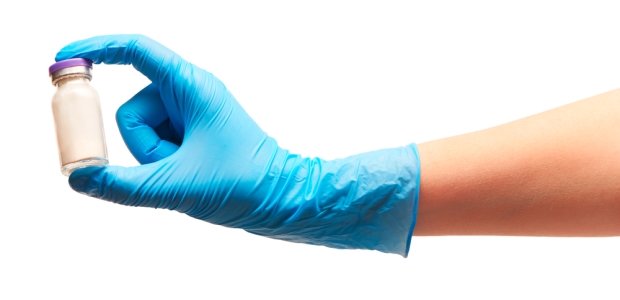
FDA to Ban Most Powdered Medical Gloves
The ban would not apply to powdered radiographic protection gloves, because FDA is not aware of any powdered radiographic protection gloves that are currently on the market; in addition, non-powdered surgeon gloves and non-powdered patient examination gloves will not be included in the ban and will remain Class I medical devices.
The U.S. Food and Drug Administration announced March 21 it intends to ban most powdered gloves in the United States. Although use of this type of glove is decreasing, "they pose an unreasonable and substantial risk of illness or injury to health care providers, patients and other individuals who are exposed to them, which cannot be corrected through new or updated labeling," according to the agency's announcement. It said the proposed ban applies to powdered surgeon's gloves, powdered patient examination gloves, and absorbable powder for lubricating a surgeon's glove.
"This ban is about protecting patients and health care professionals from a danger they might not even be aware of," said Dr. Jeffrey Shuren, M.D., director of FDA's Center for Devices and Radiological Health. "We take bans very seriously and only take this action when we feel it's necessary to protect the public health."
Powdered gloves have been a concern for many years; FDA was being requested in the 1990s to ban them, and "low-powder" and "powder-free" glove alternatives became popular. Powders are sometimes added to gloves to help make it easier to put them on and take them off, but the powder on natural rubber latex gloves can carry proteins that may cause respiratory allergic reactions. "Although powdered synthetic gloves do not present the risk of allergic reactions, these devices are associated with an extensive list of potentially serious adverse events, including severe airway inflammation, wound inflammation, and post-surgical adhesions, which are bands of fibrous scar tissue that form between internal organs and tissues. These side effects have been attributed to the use of glove powder with all types of gloves," according to FDA's announcement. "As these risks cannot be corrected through new or updated labeling, the FDA is moving forward with the proposal to ban these products, which – if finalized – would ultimately remove them from the marketplace completely."
FDA stated that, in determining that these products are dangerous and present an unreasonable and substantial risk, it considered all available evidence, which included a thorough review of the available scientific literature and comments received on a February 2011 Federal Register notice. "In addition, given the critical role medical gloves play in protecting patients and health care providers, the FDA also conducted an economic analysis that showed a powdered glove ban would not cause a glove shortage and the economic impact of a ban would not be significant. The ban is also not likely to impact medical practice, because many non-powdered protective glove options are currently available," the agency stated.
However, the ban would not apply to powdered radiographic protection gloves, because FDA is not aware of any powdered radiographic protection gloves that are currently on the market; in addition, non-powdered surgeon gloves and non-powdered patient examination gloves will not be included in the ban and will remain Class I medical devices.
FDA is accepting public comments on the proposed rule for 90 days at www.regulations.gov.